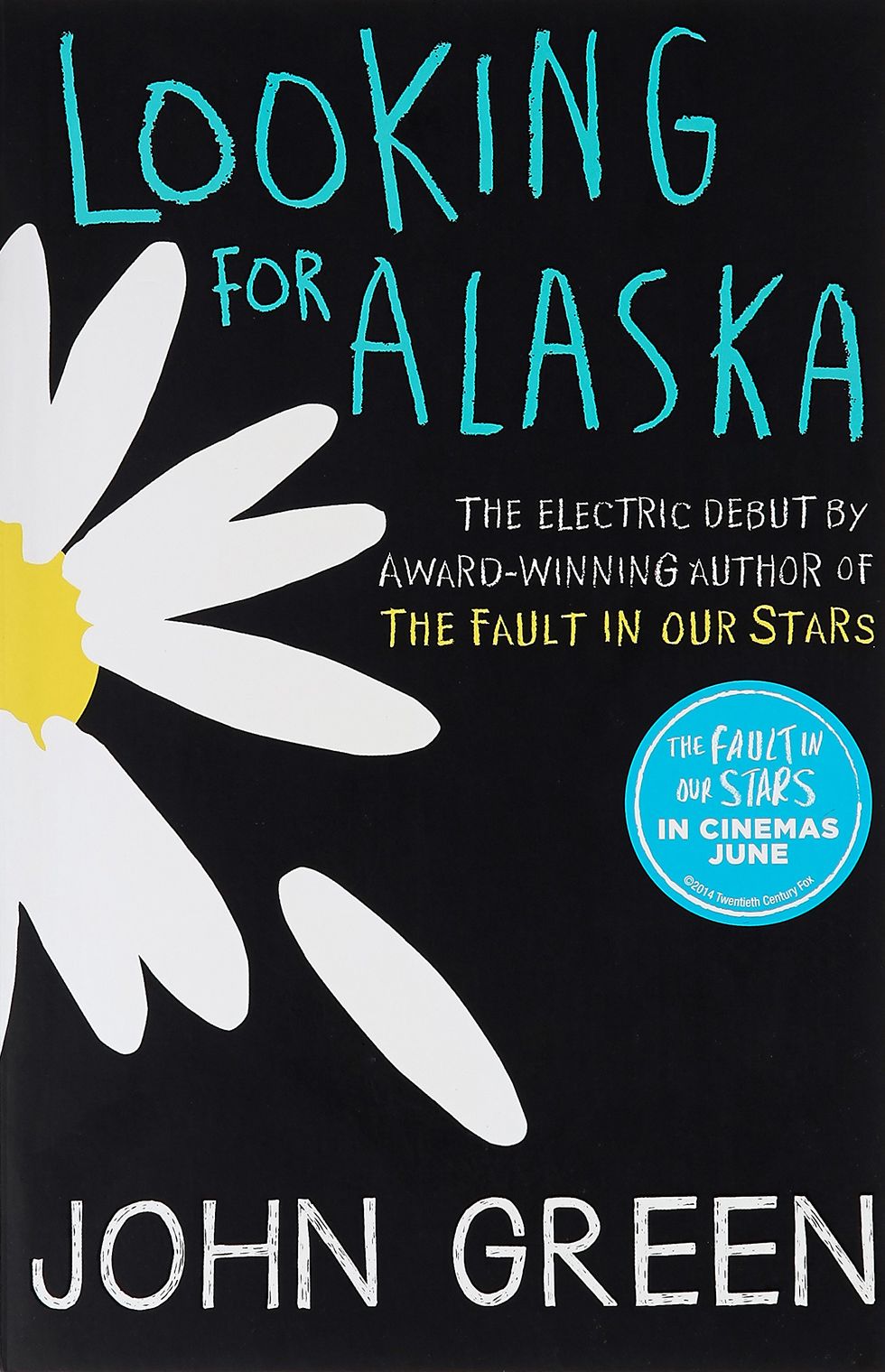It's hard to talk about death these days, for a number of reasons. Mostly because death has simply become something to be played for laughs, either said in jest or suicidal comments like "I have a test on Monday, so just kill me, please," etc., or the fact that so many video games and movies make death out to not be a huge deal. I'm not trying to bash these games, but the desensitization to violence and death, as a result, is truly real.
This is why literature and books should be the medium for reminding us the importance of life and death. Okay, I don't want to be too philosophical, but "Looking For Alaska" is a work of art that once again reminded me that as humans, we all die. It's inevitable, and the human condition is something that we must embrace all way to our very end.
John Green published "Looking For Alaska" in 2006, which is quite a long time ago, honestly. It tells the story of Miles Halter, a young man who leaves his home and school to go to boarding school in Alabama in order to find what he calls "a great perhaps." Miles is fascinated with the last words of famous people before their death, and the idea of a "great perhaps" comes from Francois Rabelais's own last words. There, he meets new friends, including the beautiful but tortured Alaska Young, who Miles can't help but find amazing. The novel explores Miles' relationship with Alaska, as well as the other characters as he finds out what it truly means to be a teenager, but also to grow up and understand what it means to become an adult, and that also means overcoming unexpected grief and a terrible loss.
There is something that you will immediately recognize as soon as you open to the first page: a countdown. "136 days before..." is an ominous warning of sorts, and for me, it immediately put me on edge. What will happen in 136 days? Will the world end? Armageddon? The stock market crashes? I'm not going to spoil it, but the Miles and his friends experience a great tragedy that they end up feeling responsible for.
I want to go in-depth with this review and criticism, but I can't for the sake of not spoiling the story. Nonetheless, what the book does right is exploring the idea of teendom and youth, as well as the idea of finding one's worth, and the meaning of all things. Throughout the book, Miles gains the friendship of Chip, known as "the Colonel," and Takumi, as well as a foreign exchange student named Lara. He pulls pranks with them, gets into trouble, and even lands himself a girlfriend. He experiences the purest form of Youth, despite the looming tragedy that eventually befalls their group. Both in the death of a loved one and the realization that he never knew them as well as he thought, Miles goes on a short quest to find his own "perhaps," as well as escape from the labyrinth of what he realizes is human suffering. Alaska had shown him the final words of Simón Bolívar: "Damn, I cannot get out of this labyrinth!" Through grief, he finally realizes that the labyrinth is human suffering and that everyone must climb their way out eventually.
I can't find any issues with this book, other than that is has been challenged by many teachers, librarians, and parents over the past decade or so, and for good reason. Profanity and sexual themes are not uncommon in this book, but these things shouldn't stop you from reading this human experience. The fact that this book has been banned and challenged only makes me want to read it more, actually. Hopefully, it's the same for you.
I recommend this book to everyone that is willing to tackle the themes in it, as well as those with a teachable spirit that are willing to learn from it: about death, about life, and about just how beautiful, yet frail, the human condition and experience truly are.
Final Rating: 5/5


















